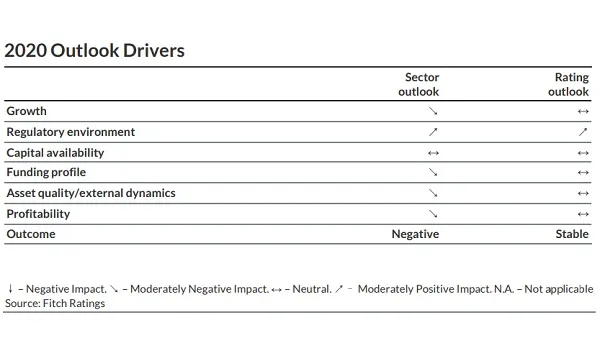
Indonesia's non-bank financial firms could face closures in 2020: analyst
The minimum capital requirement may force them to consolidate or even cease operations altogether.
Indonesia's smallest non-bank financial and leasing companies may be forced to sell, merge, or cease their operations altogether in 2020 as regulators move to require these firms to maintain a minimum capital of $7.1m (IDR 100b) by end-2019, according to a report by Fitch Ratings.
Analyst Roy Purnomo noted that independent companies’ business models are likely to come under pressure if banks continue to restrict funding, which may result in industry consolidation and an increased market share for the largest players.
Non-bank financial and lending companies face funding challenges as domestic banks– which are the largest source of debt financing for Indonesian finance and leasing companies– are expected to remain cautious in extending credit to small and mid-sized independent companies that are not affiliated with banks or automotive entities. The banking sector’s confidence in these firms remains weak following a 2018 default of a local mid-sized company amid allegations of fraud, according to Purnomo.
Also read: Indonesian banks hold back loans for finance firms
In contrast, large finance and leasing companies have been less affected by the funding crunch due to their stronger franchises and access to offshore financing and joint-financing from banks, the latter typically extended to bank-owned finance companies.
Slower growth in the sector due to falling automotive sales is also likely to intensify competition amongst smaller players as well as put pressure on profitability and asset quality, noted Purnomo. Small firms are most vulnerable to the oncoming challenges in the operating environment whilst large firms are well-positioned to handle headwinds in the industry, he added.
“[The] largest finance and leasing companies appear well placed to face headwinds, thanks to satisfactory earnings buffers from wide margins, low leverage, and, in many cases, funding and liquidity profiles that benefit from ordinary support from higher-rated bank or automotive affiliates,” Purnomo added.
This protracted competition could tempt companies to loosen underwriting standards to maintain growth and defend market share. Relaxed macro-prudential measures since 2018 could also lead companies to take on greater credit risk.
“Many have sought to offset lower new-vehicle financing by boosting used-vehicle financing in their asset mix. Any asset-quality weakening is likely to be manageable for the largest finance and leasing companies, due to better underwriting standards and risk controls,” noted Purnomo.






![Lorem Ipsum [ABF 1]](https://cmg-qa.s3.ap-southeast-1.amazonaws.com/s3fs-public/styles/exclusive_featured_article/public/2025-03/a_hand_pointing_to_a_futuristic_technology_5b87c9d0e3_1.png.webp?itok=2w0y1WhS)


![Cross Domain [Manu + SBR + ABF + ABR + FMCG + HBR + ]](https://cmg-qa.s3.ap-southeast-1.amazonaws.com/s3fs-public/styles/exclusive_featured_article/public/2025-01/earth-3537401_1920_4.jpg.webp?itok=WaRpTJwE)








 Advertise
Advertise

